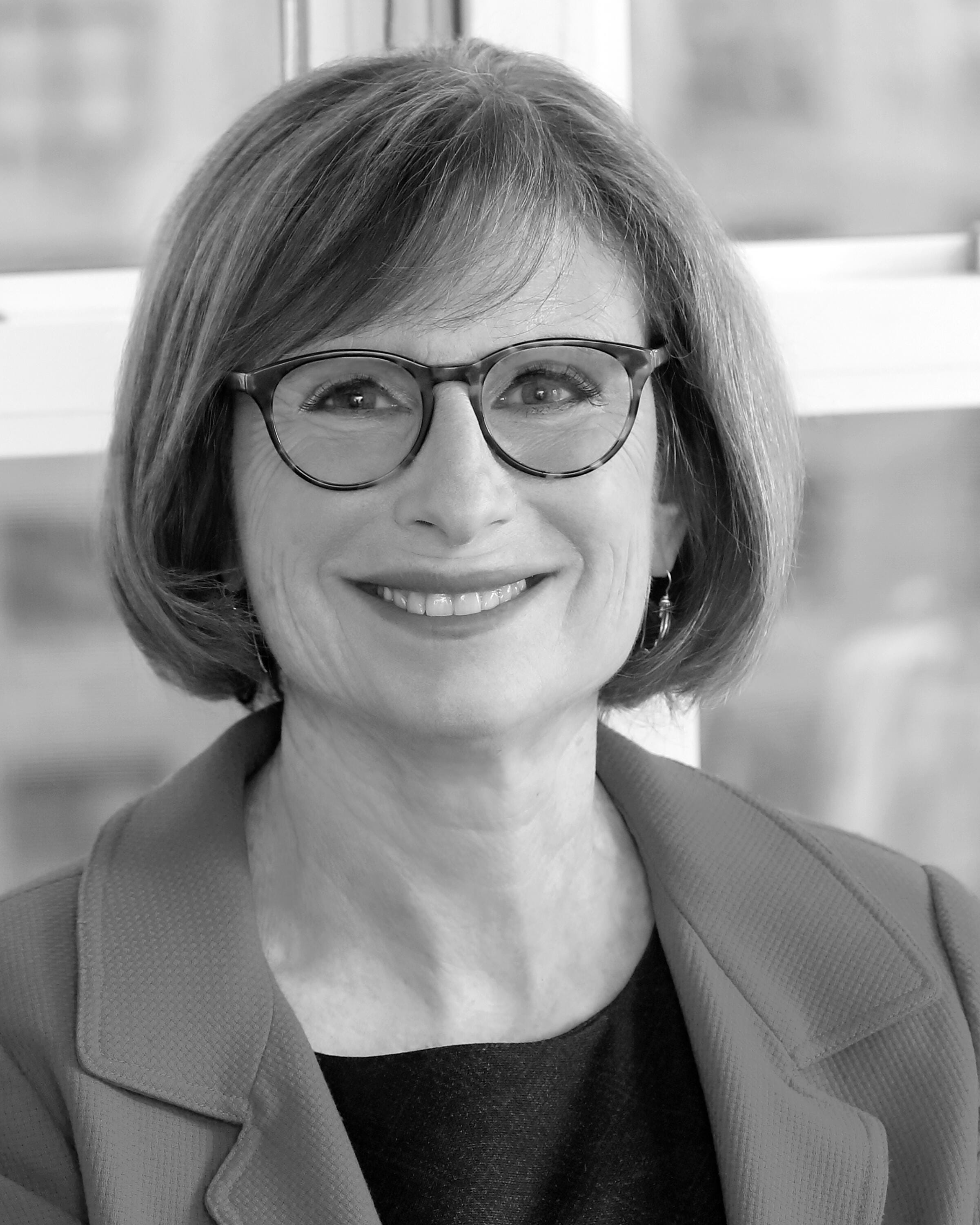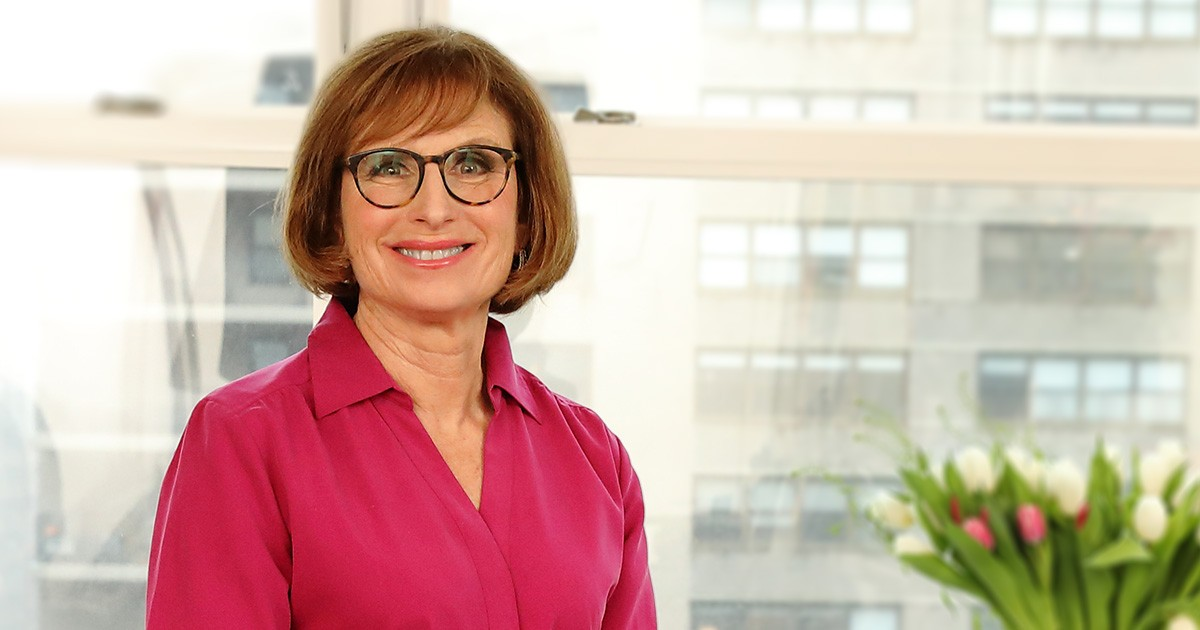Let’s make 2024 the year of the Catalyst Effect

5 min read
| Published on
In this polarizing moment, helping create workplaces that work for all is more relevant and necessary than ever.
To the Catalyst Community:
As we introduce our guiding theme for the new year, the Catalyst Effect, I am reminded of one of my favorite quotes, attributed to Margaret Mead: “Never doubt that a small group of thoughtful, committed citizens can change the world: indeed, it’s the only thing that has.” We make systemic change through individual and small group actions and everyday moments. These actions—your actions—have the power to create waves of systemic transformation. That is the Catalyst Effect.
In the over five years I’ve served as president and CEO of Catalyst, we’ve seen that together we have been able to achieve meaningful impact and accelerate progress toward creating workplaces that work for women around the world.
In the Catalyst CEO Champions For Change community, we reached critical mass for women’s representation. With women holding 37 percent of seats on corporate boards and 30 percent of executive positions—as our forthcoming findings show–it is now normative to have women in the board room and C-suite. More than 90 percent of the companies in our Champions For Change community have recently conducted a pay equity audit, with over 70 percent adjusting compensation accordingly and more than 50 percent making the results public. It is now expected that progressive companies conduct salary audits and share the data. Catalyst CEO Champions For Change companies are setting a higher bar for accountability and transparency.
We’re seeing greater focus on gender partnership, with men advocating as allies for gender equity because they know that to have a truly inclusive workplace, everyone has a role to play. Over 25 percent of Catalyst Supporters have participated in our Mutual Accountability, Real Change (MARC) gender partnership initiative, as a tool to more deeply engage men as partners in creating change. Companies like Chevron, P&G, Dow, and many others have used MARC’s research-based experiential learning as the catalyst for cultural change in their organizations, one ally and advocate at a time.
This past year, we also asked ourselves: what would it look like if women at all levels in the workplace could thrive on their own terms and by their own definitions of success? The answer was to broaden Catalyst’s impact beyond the office and the C-suite to include women in frontline roles.
With our Frontline Employees Initiative, including groundbreaking research, solutions and tools, Catalyst offers actionable insights that can change the way frontline managers and corporate leaders create respectful and rewarding workplaces. We have worked closely with Supporter organizations like Dow, Marriott, Northrop Grumman, P&G, Sodexo, Target, and more.
Other Catalyst research made headlines and expanded the way we understand and address racism in the workplace, spotlighted the experiences of women from marginalized groups, and tackled childcare needs.
And all of this happened amidst a cultural backdrop that reinforced the importance and relevance of gender equity. We’re coming off the 2023 “year of the woman” in pop culture, fueled by Beyoncé and Taylor Swift’s record-breaking concert tours and Barbie at the box office. And in a historic moment for the movement to advance gender equity, research on women’s workforce participation and economic power earned a Nobel Prize for the visionary economist Claudia Goldin.
This is encouraging progress and worth celebrating. This is the Catalyst Effect.
Staying the course
We must also acknowledge the headwinds. We can’t ignore the fact that 90 percent of Fortune 500 CEOs are still men and mostly White. And the gender pay gap remains a stark reality, with women’s average earnings in the US hovering around 82 cents for every dollar earned by men. For women of color, the numbers are even worse.
The US Supreme Court decision to effectively eliminate race-conscious affirmative action in college admissions opened the door to challenges to corporate diversity, equity, and inclusion (DEI) initiatives.
The acronym “DEI” is being weaponized and politicized by critics. We know that what they assert is simply not true. Research consistently shows that diverse teams outperform those that are not. Inclusion of diverse perspectives drives creativity, problem-solving, and adaptability. Inclusion not only attracts top talent but also retains it. We heard from you, our Catalyst community, that your commitment to diversity, equity, and inclusion remains unchanged. The Catalyst community must continue to lead the way.
DEI is not a zero-sum game; it benefits everyone by fostering creativity, enhancing performance, and creating workplaces that are not only fair but flourishing—and where everyone can thrive. It is the pathway to creating workplaces that work for women—and for everyone.
Today’s polarized environment challenges us all to have difficult conversations and bring people together around our common humanity. The very practices of inclusive leadership are what will help us bridge divides in these conversations. There is an opportunity to not only talk about the benefits of inclusive leadership but to put it into practice in this polarizing moment towards common cause. Catalyst has tools to help. Respectful and rewarding workplaces that reflect the full humanity of society are good for business and good for everyone. That’s why we must stay the course. Not only because it’s the smart thing to do, but because it’s the right thing to do.
Thank you for being at the center of that work with us. We hope you’ll stay the course alongside us and join us — in person or remotely — at the Catalyst Awards on 12 March. Let’s forge ahead. Let’s make this the year of the Catalyst Effect.
With gratitude and resolve,
Lorraine